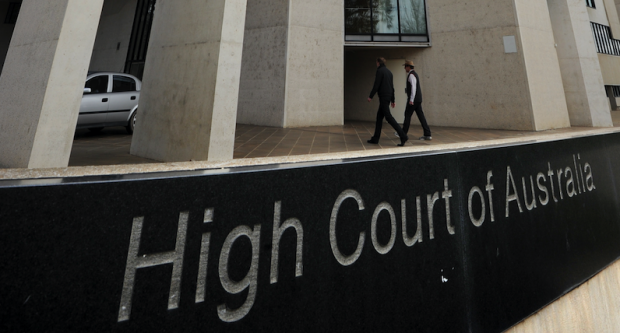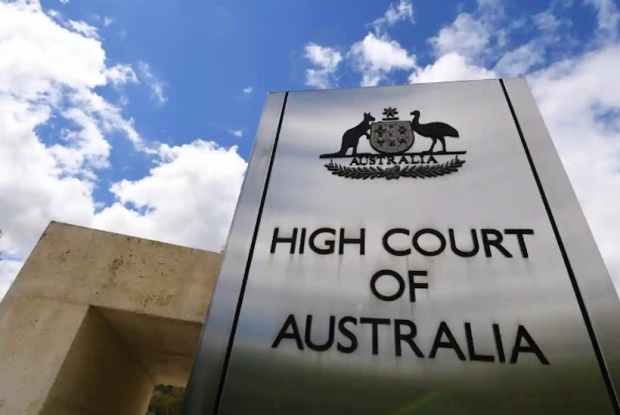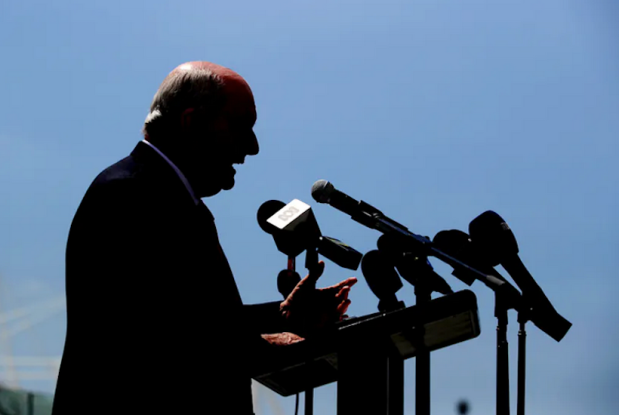 Why has there been such a long-term decline in maths and science learning in our schools, and in the qualifications of those admitted to study in our universities? And what has this to do with High Court appointments?
Why has there been such a long-term decline in maths and science learning in our schools, and in the qualifications of those admitted to study in our universities? And what has this to do with High Court appointments?
The answer is everything. The Australian people approved a Constitution that endows the federal parliament with strictly limited powers. Education does not appear in the list of federal powers for the reason it was clearly intended that this remain the exclusive province of the states.
So with what authority did the Rudd government pour billions down the drain in the Building the Education Revolution? How did Canberra introduce and fund the Marxist-designed Safe Schools program introducing children to gender fluidity, breast flattening and penis tucking?
Why, with billions and billions of federal taxes poured into education, is it such a disaster? How does Canberra get so involved in myriad activities not authorised under the Constitution?
One of the great advantages of federalism is it encourages competition between the states, allowing the public to compare different ways governments deliver services, for example in education.
Making these uniform, the usual panacea to any and every problem in Australia, more often than not creates uniform, rigid and wasteful bureaucratic monstrosities. In a 2007 report to the states academics Anne Twomey and Glenn Withers found that Australia could improve its gross domestic product by about 10 per cent if we adopted “best practice federalism” as displayed by Germany, Canada and Switzerland. Or, indeed, as it was once practised here.
So why did we change our Constitution to create a centralist leviathan sucking up about 80 per cent of taxes and minutely controlling all manner of activities never envisaged by the founders, with such a consequential and unprecedented loss of confidence in the governance of our country?
It was not the people who changed the Constitution. Whenever they were asked to transfer powers to Canberra, they have almost always said no. But on almost all of these, there’s now no need for a referendum.
The High Court effectively has given these powers to Canberra, even imagining constitutional reasons to invalidate the Howard government’s attempt to block electoral fraud. Although the judges frequently declare that the legal and political sovereignty of Australia resides in the people, this is more honoured in the breach than in the observance.
We all join in recognising the distinguished achievements of incoming chief justice Susan Kiefel and newly appointed Justice James Edelman. But an appointment to the High Court is not just about finding a highly qualified lawyer.
The Labor Party, openly committed to increasing centralisation and control, will, as The Australian’s Troy Bramston confirms, appoint judges to further this agenda.
So why didn’t a government whose parties declare their commitment to constitutional federalism reciprocate by appointing judges who are likely to interpret the Constitution as it was intended by the founders, and approved and confirmed by the people?
Donald Trump was elected on a promise to do precisely this, ending the reign of activist judges who have changed the US Constitution in ways that would astound the founding fathers, particularly through the creation of a constitutionally guaranteed right to abort. He even released a list of potential nominees who could be expected to interpret the Constitution according to its original intention. This is usually taken to mean that a constitutional provision means what a reasonable person would have thought it meant when it was adopted or amended. There is a respected school of jurisprudence that argues to this effect, the most prominent proponent being the late justice Antonin Scalia of the US Supreme Court.
The extraordinary thing in Australia is that there is not one judge on the High Court who supports this approach. Not one. We know this from the 2013 same-sex marriage case where an ACT law introducing same-sex marriage was found invalid. Curiously, the judges then went on to offer their unanimous opinion that the federal parliament could introduce such legislation.
This conflicts with the entirely reasonable view that the power to legislate with respect to marriage means marriage, as a reasonable person would have understood it and intended it at the time of Federation. If parliament wants to introduce same-sex or polygamous marriages, it has to ask the people first.
Appointments to the High Court don’t come up often. Surely a government committed to federalism should ensure that there are at least some judges on the court who, like the great Scalia, will interpret the Constitution according to its original meaning and not as some “living document” — buzz words that give an extraordinary discretion to the judges to find some hidden meaning that eludes the public? Perhaps a Mark II Abbott government will select candidates more inclined to ensure that the people are truly sovereign.
David Flint is an emeritus professor of law. This opinion piece first appeared on the Legal Affairs page in The Australian on December 2.
Got something to add? Join the discussion and comment below.
Get 10 issues for just $10
Subscribe to The Spectator Australia today for the next 10 magazine issues, plus full online access, for just $10.

























Comments
Don't miss out
Join the conversation with other Spectator Australia readers. Subscribe to leave a comment.
SUBSCRIBEAlready a subscriber? Log in